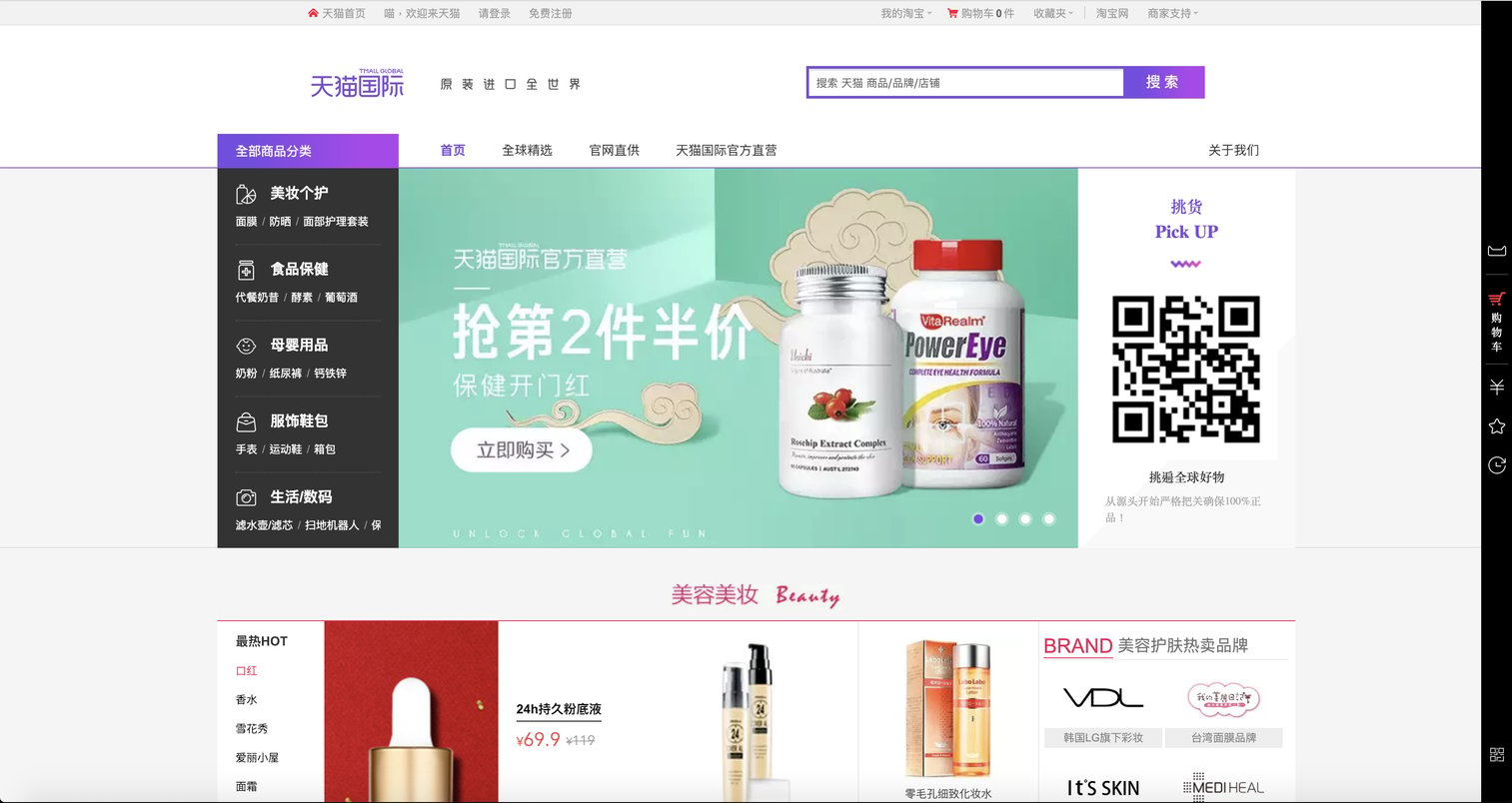- Uncategorized
Sell into China through Cross Border? Is Tmall Global your answer?

At CLEARgo, we have been talking to and helping many brands to sell in China, especially through marketplaces such as Tmall Global and JD Worldwide. Here are some of the key considerations if you are also planning to sell into China.
Domestic or Cross Border eCommerce?
For most brands, selling inside China through the domestic model is the ultimate goal, but it could be hard to do so right away as you would either need to find a Chinese distributor or go through the complicated process of setting up a Chinese entity, performing product testing, importing into China, etc.
The alternative to this would be Selling through Cross Border – this way you can receive orders from Chinese consumers, get paid in your local currency while customers pay in RMB, and you can ship your goods from your home country or bonded warehouses in China, without setting up an entity in China.
New China eCommerce Law starting 2019
Cross border commerce in China has been growing rapidly in the past couple of years. In the early days, there were not many rules and restrictions. In 2006, China started to put up clearer cross border taxation rules, and has since updated its laws and restrictions with the latest update effective on 1st January, 2019. While the latest eCommerce law impacts everyone from the platform operators to the individual sellers in Taobao and WeChat, it has also issued several updates on cross border:
1. The main circular (download here) established regulations for the various parties involved in cross border trade, including the platforms (such as Tmall), sellers and consumers. One key regulation is to outlaw reselling the goods domestically once it has been purchased through cross border. And in order to track such cross border transactions, there is clear requirements on providing the “Three Documents” to the customs electronically for every transaction: the order data, payment data, and logistic data.
2. The limit for single cross border transaction has also increased from RMB 2,000 to RMB 5,000, and the annual transaction limit from RMB 20,000 to RMB 26,000. This effectively allows a broader range of goods to be accepted under the cross border custom channel. For goods sold between RMB 5,000 and RMB 26,000, while they are allowed to be sold through cross border channels, full custom taxation, value-added tax and consumer tax would need to be applied. (Download the notice here)
3. An expanded whitelist for what products can be allowed for Cross Border eCommerce, including sparkling wine, beer, heath care and fitness equipments, etc. – announcement “here” and list “here“.
Select the Right Channels for Cross Border eCommerce
Due to the wide news coverage of Alibaba, most people have already heard of Taobao and Tmall, and its cross border offering Tmall Global. Indeed, many overseas brands and retailers have set up “Flagship Stores” and “Specialty Stores” at Tmall Global. Selling through established platforms such as Tmall Global has made some parts of operations a lot easier – This includes the established tools and events that have been proven to draw customers’ attention, the available large pool of audience that the platform already possesses, cross border payment (through Alipay Global) and logistic infrastructure (through Cainiao Logistic) that are readily available.
Setting up a Tmall Global store can be a somewhat difficult process for SME brands – not so much the setup itself but to actually gain the approval for the application of getting a Tmall Global store. Before 2016, any brand that fulfil a certain criteria was allowed to set up a store at Tmall and Tmall Global. However, it has since become an “invite-only” store, and the barrier to entry has risen significantly. If your brand is a tier one brand at your home country, and it is already popular with Chinese tourist with quite a number of Taobao sellers selling your products in the form of “Daigou”, then the chance of gaining approval is high. Tmall Global will allow you to capture existing demand and grow in China. If not, it can be an uncertain and long process.
Apart from Tmall Global, there are other platforms and alternatives, such as JD Worldwide, Kaola, RED, Wechat Store, etc.
Overall, selling into China requires a lot of commitment and effort, and it is very different compared to selling at western marketplaces such as Amazon.
CLEARgo as your Tmall Global Partner “TP”
As a Tmall Global recommended TP, CLEARgo works with brands on the overall planning, application and setup, day-to-day operational management, marketing and promotions, and technical integration (through our CLEARomni platform). Please contact us for more information.
